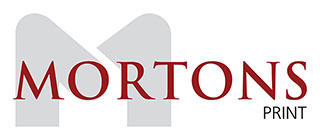A Second World War bomber pilot who was awarded the DFC, Sir Gordon Linacre became a leading and influential figure in English provincial journalism from the 1980s until his death on Thursday night at the age of 94.
He was made chief executive of the extensive United Newspapers group in 1983, and later served as president of the Newspaper Society.
Sir Gordon (pictured) , knighted in 1986, was born in Sheffield, his father a foreman in the stamping department of the English Steel Corporation.
At seven, he announced he wanted to be a reporter while a pupil at Firth Park Grammar School where he brought out a school magazine.
He became a reporter on the Sheffield Independent at the age of 17 – his first job to cover a bee-keeper’s meeting.
The day after the out-break of World War Two, he and his best friend Raymond Somerfield, a sports reporter on the Sheffield Telegraph, joined the RAF and both became bomber pilots.
In 1941 Sir Gordon was awarded the DFC while Mr Somerfield was killed the following year while in action.
There was to be a poignant postscript – Sir Gordon was accompanied to the investiture ceremony by Mr Somerfield’s ex-fiance Irene who showed him the way across London.
As the two made their way to the Palace, the beginnings of a romance were forged which would last until Lady Linacre’s death in 2013.
Sir Gordon received the Air Force Cross in 1943. By the time he left the RAF in 1946, he had been shot down three times, and had been promoted to squadron leader.
At the end of the war he was offered a regular commission, but turned it down so as to pursue his chosen career in journalism, and got a job as a sub editor on the Sunday Graphic.
He went from there to the Kemsley News Service, and then to the North East where he was assistant editor of the Newcastle Journal, and assistant editor of the Evening Chronicle.
In 1958 he was appointed editor of the Sheffield Star, his editorial team including Peter Tinniswood and David Nobbs.
By now Sir Gordon was taking an interest in every aspect of the newspaper business, and his ambition steered him towards a more wide-ranging managerial role.
In 1963, the newspaper magnate Roy Thomson (later Lord Thomson of Fleet) made him executive director of Thomson Regional Newspapers.
The board of Yorkshire Conservative Newspapers (YCN), which owned The Yorkshire Post and its sister paper the Yorkshire Evening Post, knew of him.
Looking for someone to take over as managing director, they decided he was the man for the job. He eventually accepted the offer, arriving in Leeds in April 1965.
The role was not quite what he had expected: the company had recently bought theEvening News in Leeds whose owner had taken shares rather than cash – indeed so many shares that he was very close to having a controlling interest in YCN.
Sir Gordon’s efforts to dilute this holding led to negotiations with the United Newspapers group for a merger, in which Yorkshire Post Newspapers (YPN), as it would now be, would remain an independent entity while he and another board member joined the board of United Newspapers, and three United Newspapers directors joined the board of the YPN.
In 1981, he became deputy chairman and joint managing director of United Newspapers before being appointed chief executive in 1983. The company acquiredLink House, Express Newspapers, Morgan-Grampian and Extel.
Its regional newspaper division, of which Sir Gordon was made chairman, eventually owned 130 titles in England, Wales and Scotland.
From 1973 to 1977, he was president of INCA/FIEJ, the German-based research organisation, on whose behalf he travelled extensively, meeting with numerous heads of state, including Richard Nixon and the Crown Prince and Princess of Japan.
He was president of the Newspaper Society in 1978-79.
Sir Gordon now oversaw the move from the company’s headquarters in Albion Street to a site outside Leeds city centre in Wellington Street. The new headquarters were officially opened by Prince Charles in December 1970.
Despite admitting to a “powerful inclination to interfere” with editorial policy of the two Leeds-based papers, he allowed his editors full control. In making appointments, he was not influenced by a candidate’s experience, but in their qualities.
He remained chairman of YPN until 1990, when he was made the company’s first president. In that year he was awarded the Newspaper Society’s President’s Prize. He had been knighted in 1986.
The Italian and Finnish governments gave him awards equivalent to an English knighthood.
Sir Gordon discharged himself from hospital in order to receive a lifetime achievement award from the Variety Club Business Awards in 2009.
Speaking about the prevailing recession, he told the 475-strong audience that the ingenuity and drive of people in Yorkshire would create new opportunities.
“Out of this will come good things. In four or five years’ time I think the economy of Britain will be much, much stronger,” he added.
He was a director of English National Opera and chairman of Opera North.
Fit, active, sporting and highly companionable, he played golf seriously. In addition to his regular games, he was a keen hill walker and an enthusiastic fly fisherman.
From 2000 until 2013 he made an annual trip to fish for salmon on the Russian Kola peninsular within the Arctic Circle, and last year on the Spey landed a 9lb salmon.
Sir Gordon is survived by his daughters Anthea and Philippa.





